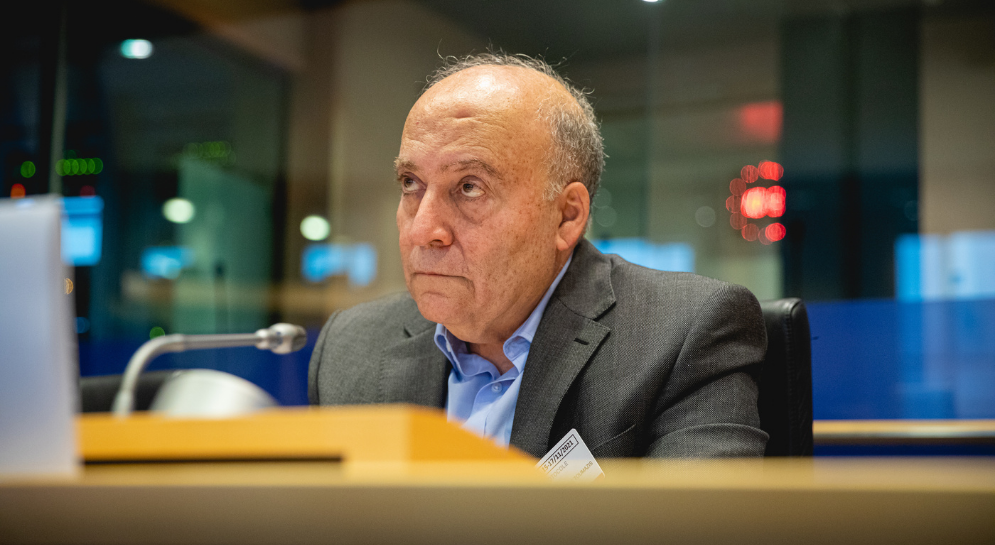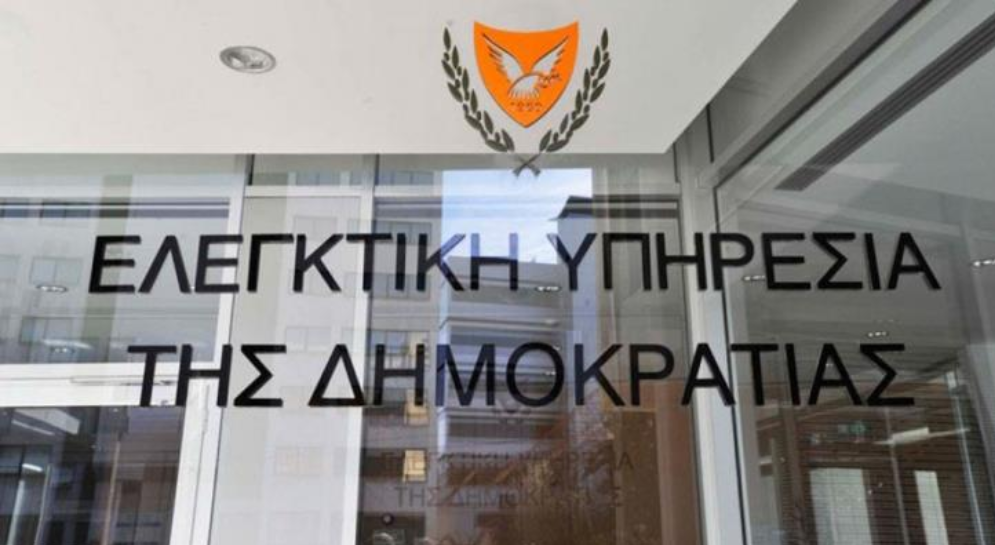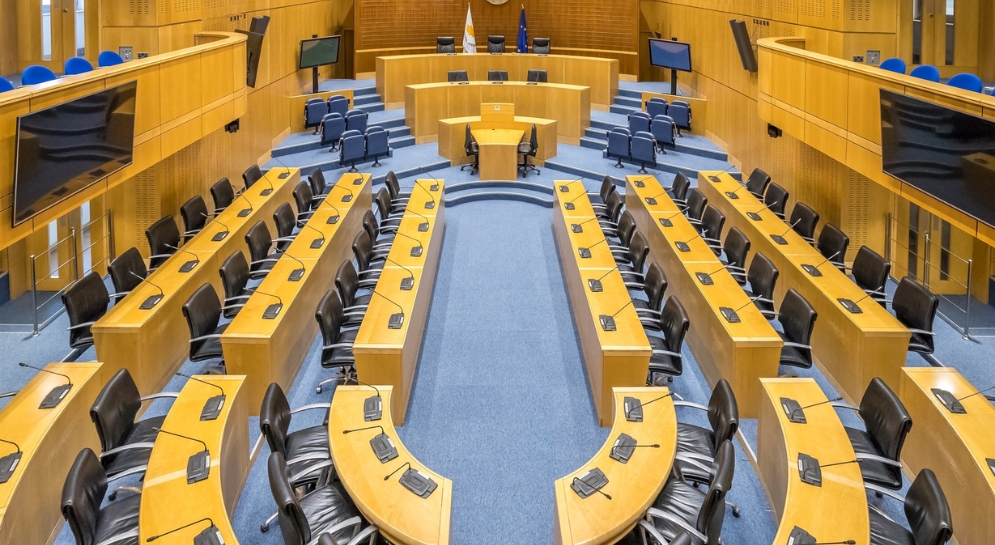
Speech by Toumazos Tsielepis, AKEL Political Bureau member and Head of the Cyprus Problem Office of AKEL, in the debate organised by AKEL and the LEFT GUE/NGL Group
“The Cyprus problem: Quo Vadis?”
16 November 2021, Brussels, European Parliament
It is generally acknowledged that at Crans Montana we had come very close to resolving the core aspects of the Cyprus problem, which would consequently have made the comprehensive solution inevitable. This explains why the UN Secretary General Mr. Guterres, in all but the last of the Reports he subsequently submitted to the UN Security Council, insisted on continuing the negotiations from where they had remained. He was fully aware that if this was accepted in practice, we could, within a short period of time, have reached the much desired solution. Indeed, Mr. Guterres proposed making use of the natural gas as an incentive to get back on the rails of Crans Montana.
AKEL, as a responsible and serious party working consistently for a solution within the agreed framework, submitted a comprehensive proposal on the Cyprus problem to the President of the Republic approximately a year ago, which is not only consistent with, but also gives a concrete form to the Secretary General’s proposal.
AKEL’s proposal serves two main objectives. First, we propose that concrete steps be taken which can convince that the declared readiness for a resumption of the negotiations on the agreed basis of a solution of bicommunal bizonal federation with political equality as set out in the relevant Security Council resolutions and from the point left by the end of the Crans Montana Conference, is sincere. Given that we do indeed understand that in the current conditions it is imperative that we provide serious incentives to bring the talks back on the tracks of Crans Montana, we have also submitted the proposal on natural gas.
The proposal for a resumption of the negotiations begins by stressing our insistence on a solution of a bicommunal, bizonal federation with political equality, as set out in the relevant resolutions of the UN Security Council, without terms or preconditions. This position may appear self-evident, but especially in the current circumstances it takes on a particular importance given that the new Turkish Cypriot leadership and Ankara after Crans Montana are essentially insisting on a two state solution, setting as a precondition for the resumption of the negotiation procedure the recognition of ‘sovereign equality’ and equal international status for the Turkish Cypriot community.
Furthermore, we express our readiness to continue the negotiations from where they had left off with the 2014 Joint Declaration, the UN Secretary General’s Framework and the Convergences that have been recorded. It would be a big mistake to abandon the agreed body of work of the talks as this would unavoidably lead to new endless discussions.
More specifically, we reaffirm the validity of the convergences recorded relating to political equality and in particular effective participation in both the bodies as well as in the decisions of the federal state, including the rotating presidency with a cross-weighted vote and a single positive Turkish Cypriot vote for any decision to be approved by the Council of Ministers. This position is also of great importance since there is a strong impression within the Turkish Cypriot community that the Greek Cypriot leadership does not accept political equality and the relevant convergences. This is, after all, the Turkish side’s argument for the return to the position for a two state solution.
Finally, we express our readiness to submit at the appropriate time bridging proposals not on already agreed convergences, but only on the outstanding issues of the Six-Point Framework of the UN Secretary General, with the aim of reaching a strategic understanding as soon as possible. It goes without saying that if this goal is fulfilled, a speedy comprehensive settlement will become inevitable.
The second part of AKEL’s proposal begins with a reaffirmation of the relevant convergences recorded with regards the natural gas and maritime zones. According to these convergences, the maritime zones will be a federal competence (consequently a matter to be co-managed by the two communities), natural resources will also constitute a federal competence (which by definition includes natural gas), and the allocation of federal revenues (which will include the revenues from the hydrocarbons) will be regulated.
We did not confine ourselves just to the convergences, but we also took into account the Turkish Cypriot side’s concern that these convergences only concern what will happen after the solution and do not provide for anything before the solution. For that reason, we propose, with the conclusion of a strategic understanding, that the issue of the involvement of the Turkish Cypriots in natural gas issues should be discussed, thereby satisfying a long-standing demand of the Turkish Cypriot side. This represents a very significant step and an incentive for the Turkish Cypriot side. At the same time, our proposal also meets the Turkish Cypriot community’s concern as to its share of the gas revenues.
At the same time, our proposal also meets the concerns of the Turkish Cypriot community regarding its share of the gas revenues which is attributable to it. In the past we have proposed the creation of an escrow account in which, in the event of a stream of revenues before the solution of the Cyprus problem, the Turkish Cypriot community’s share should be deposited in order to be given to it immediately with the solution. This proposal was met with distrust from the Turkish Cypriot side and for that reason in the AKEL proposal we proposed that with the solution of the Cyprus problem the existing Fund, from which no disbursements are allowed with the intervention of AKEL, should be converted into a federal hydrocarbon fund.
As far as the incentives to Turkey are concerned, we took seriously into account its positions as they were expressed informally from the time when negotiations were being conducted, that is to say before the Crans Montana conference. We propose that after the overall settlement of the Cyprus problem, the united Republic of Cyprus and Turkey should begin negotiations aiming at the delimitation of the Exclusive Economic Zone on the basis of the International Law of the Sea.
Indeed we clarify that regardless of the progress of the negotiations for delimitation, after the entry into force of the agreement for a comprehensive settlement of the Cyprus problem, the United Republic of Cyprus and Turkey will start talks for the conclusion of a mutually beneficial agreement with regards the route of a natural gas pipeline towards Turkey, provided that there is a fertile economic and technical ground (either for its own use or for transport to other destinations).
In conclusion, we note that with the comprehensive settlement of the Cyprus problem, the Federal Republic will not put any obstacles to Turkey’s participation in the broader energy plans in the region.
Despite the fact that we recognise that no one can guarantee if our proposals are accepted by President Anastasiades that Turkey and Mr. Tatar will cooperate for a resumption of meaningful negotiations and for a conclusion on a solution within the agreed framework, at least they will be pressured in this direction because if they do not they will be left exposed.
If we all attach the necessary importance to AKEL’s proposal, which the only thing it does is that it gives a concrete form to the UN Secretary-General’s persistent and well-founded recommendations, we can hope that there will be a prospect of breaking the current deadlock. This is the surest and most effective way to address Turkey’s delirium of intransigence.
This is something that the so-called “new ideas” that are being put forward both domestically, as well as by third parties, cannot achieve. These ideas, which nullify key convergences, took decades to achieve and are in fact not new at all. On the contrary, they take us at least twenty years back and, if they do eventually prevail, will drag us back to the endless debates of the past.




